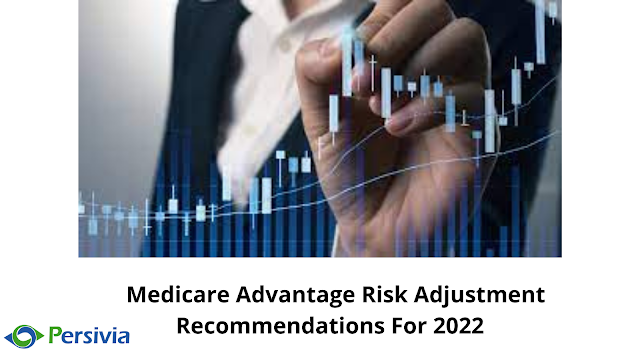A Risk adjustment Solution estimates healthcare costs that compare a person's health to a number known as a risk score. The "risk" to a health insurance plan covering members with high projected healthcare usage is "adjusted" by covering those with low estimated healthcare costs.
Risk adjustment is a
program in which health insurance providers participate and are reimbursed for
managing individuals' healthcare requirements depending on their diagnosis.
Since Risk Adjustment
programs are devised and maintained by government organizations that exist to
serve all entitled members of the general public, a health insurance provider
cannot prejudice or cover just the members of a specific demographic with a
restricted range of predicted healthcare expenditures. The case mix of both
healthy and critical patients and the cost-sharing of spending shared by all
members is intended to enable access to quality care regardless of medical
condition or history.
Medicare Advantage Plans
Apart from the
government's regular Medicare and Medicaid programs, Medicare enrollees have
the option of getting services through a variety of private insurance plans.
These private insurance alternatives are known as Medicare Advantage (MA)
Plans. They are a component of Medicare Part C. MA is a method of obtaining
medical services and Medicare coverage.
Recommendation for
Medicare Advantage Risk Adjustment in 2022
Considering the critical
stay-at-home instructions and regulations throughout 2020, Medicare
Advantage providers are now confronted with the issue of insufficient
prospects to accumulate encounter data to do comprehensive risk adjustment
equations. Concerned about the impact of risk adjustment scores on consumer
premiums, benefits packages, and patient out-of-pocket costs, the Alliance of
Community Health Plans (ACHP) has requested that CMS amend the MA risk
adjustment criteria for the year 2022.
ACHP recommends CMS to
permit MA entities to use a 24-month look-back timeframe to enhance 2020
statistics for the assessment of 2021 risk scores. ACHP argues that it allows Medicare
Advantage Plans to avoid the detrimental impact of
under-risk-adjusting.
ACHP suggests that CMS
create a replicable strategy for 2022 since recent increases in COVID-19 show
that the healthcare industry will be under pressure long beyond 2021.
ACHP anticipates that even though COVID-19
vaccination is now available in 2021, there will be a time lag between its
supply and the return to regular activities. Considering the fact that vaccine
distribution efforts are regulated on a state-by-state basis, it is quite
probable that recipients, particularly the most vulnerable, will be unwilling
to shift to pre-pandemic standards of care instantly.




No comments:
Post a Comment
Please do not enter any spam link in the comment box